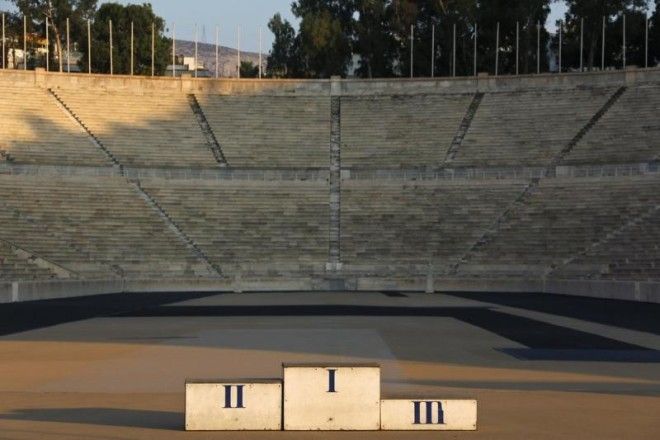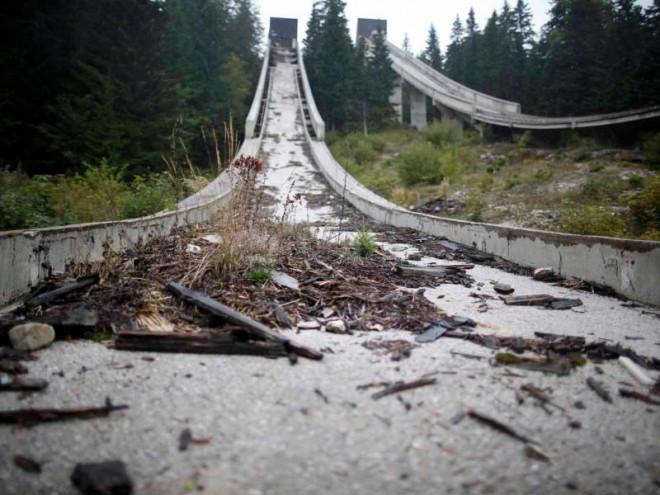Most cities simply do not have the infrastructure required to withstand the two-week influx of athletes, coaches, fans, and media members. The money required to build state-of-the-art athletic facilities is skyrocketing, and academic research suggests spending billions on a two-week event is not a wise investment.
In the worst-case scenario for host cities, Olympic venues go unused after the games and become white elephants — total wastes of space and money. We've seen this at a number of different Olympic sites around the world. Of course, the reasons this happens are specific to each country: Sarajevo, for example, suffered from a gruesome war that caused the 1984 Winter Olympic venues to crumble. Nevertheless, these photos from Reuters, Getty Images, and others have become symbolic of the downside of hosting the Olympics.
Sarajevo hosted the Winter Olympics in 1984.
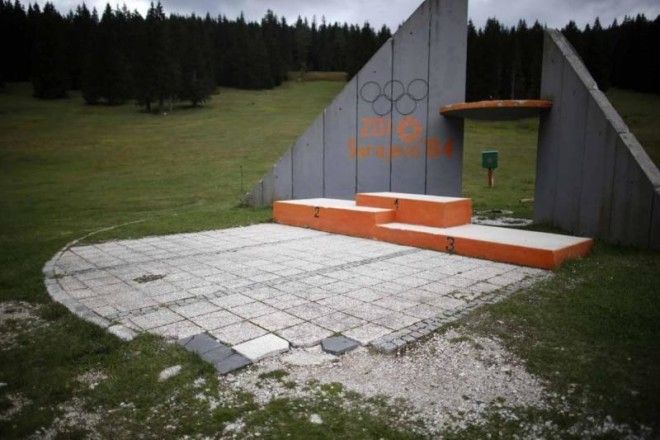
One decade later, civil war broke out and ravaged the country.
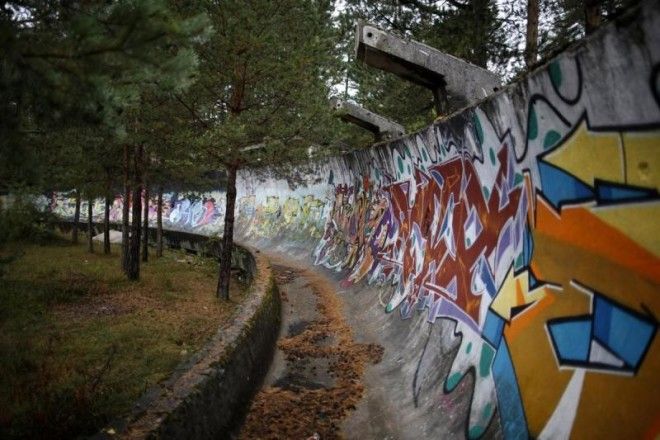
Some of the Olympic venues were repurposed and used as military facilities.
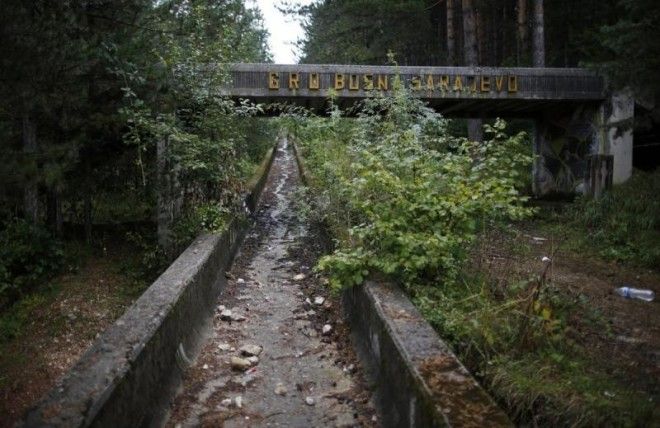
The bobsled facility was turned into an artillery stronghold during the war.
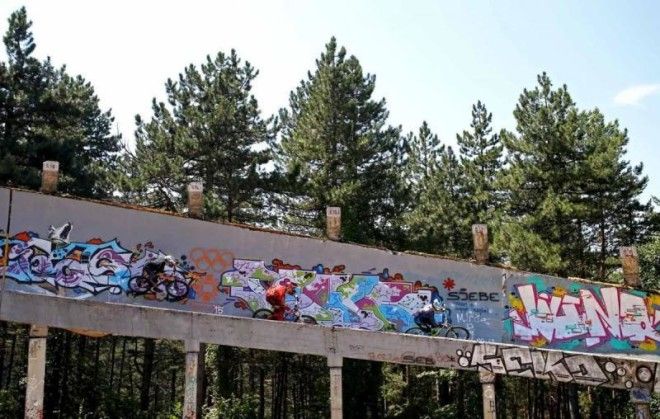
Today the heavily gratified course is sometimes used for BMX races.
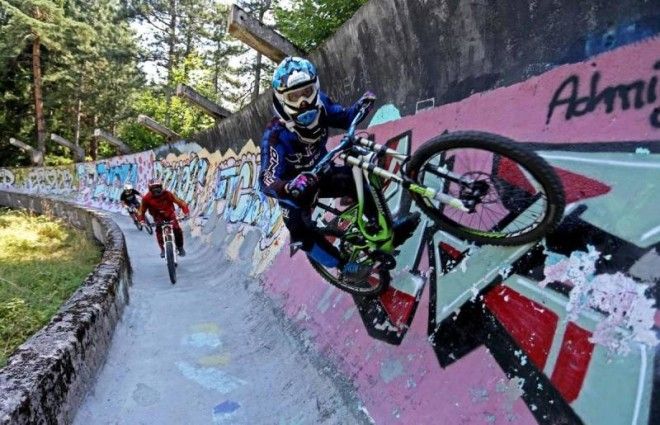
A dog walks past the Kosovo Stadium, where the opening ceremonies were held.
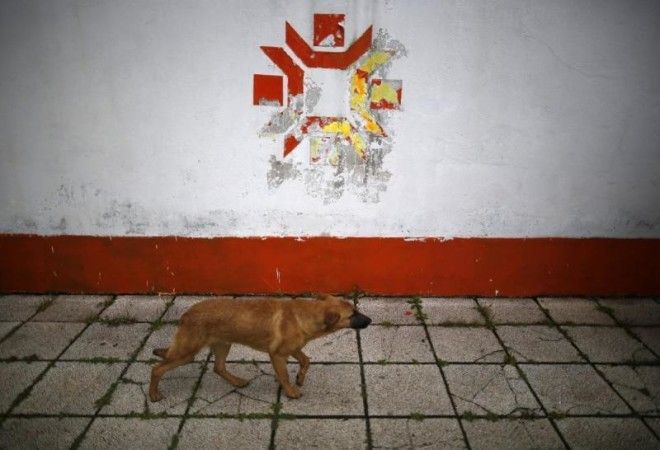
And weeds grow over the walls of the Kosovo Stadium.
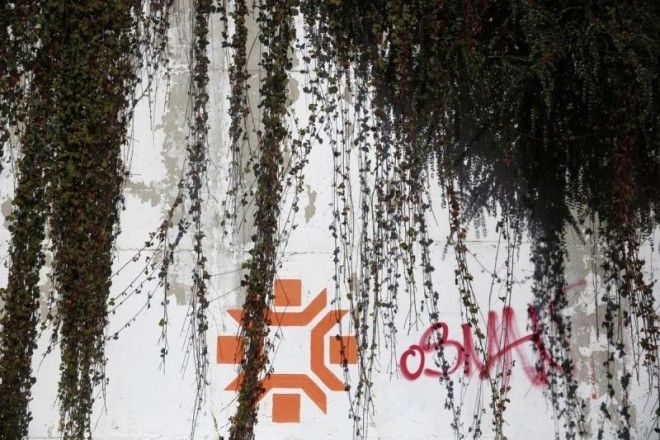
The abandoned ski jump at Mount Igman.
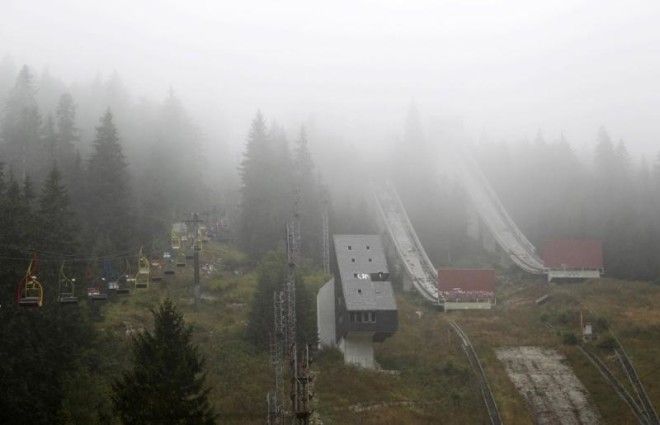
Seating is overrun with grass and weeds.
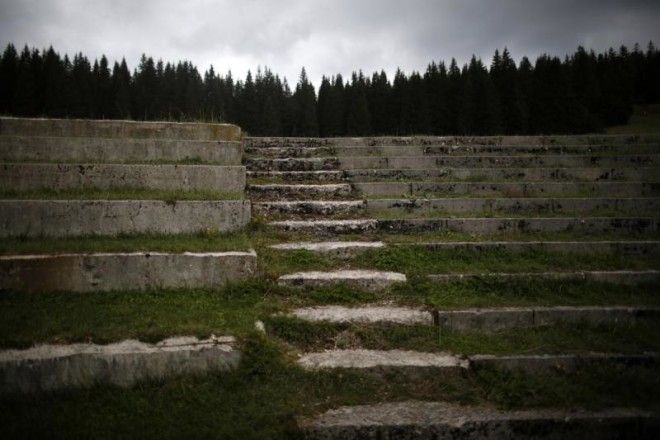
Another angle of the ski jump.
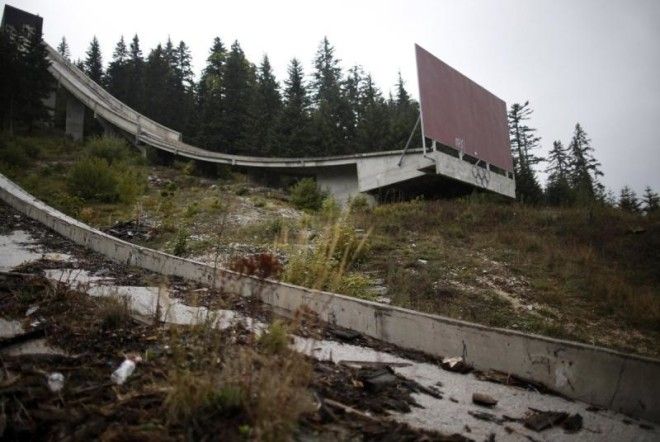
The track itself is covered in debris.
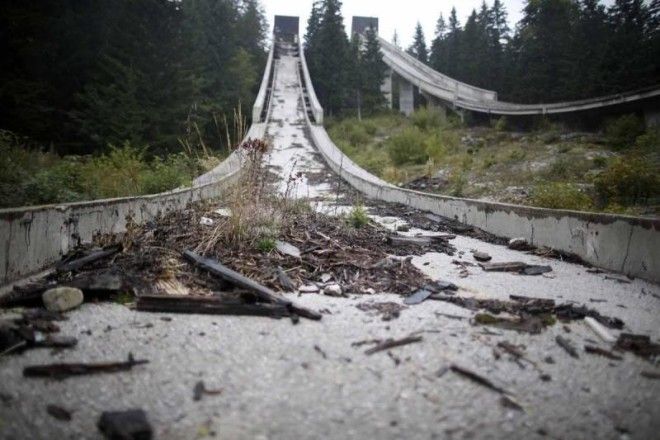
The ski jump through a broken window.
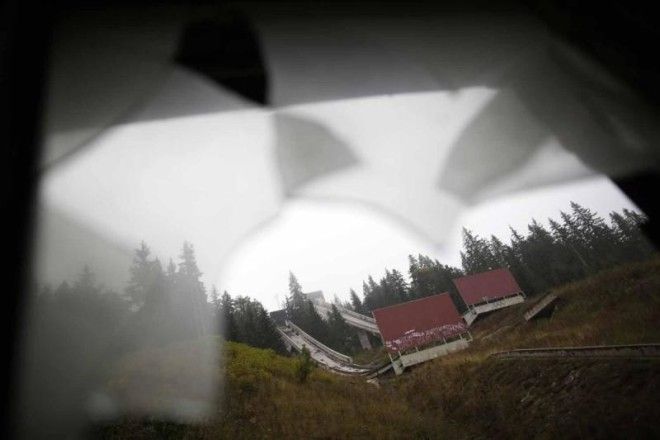
The Olympic rings on a tower above what used to be the figure skating arena.
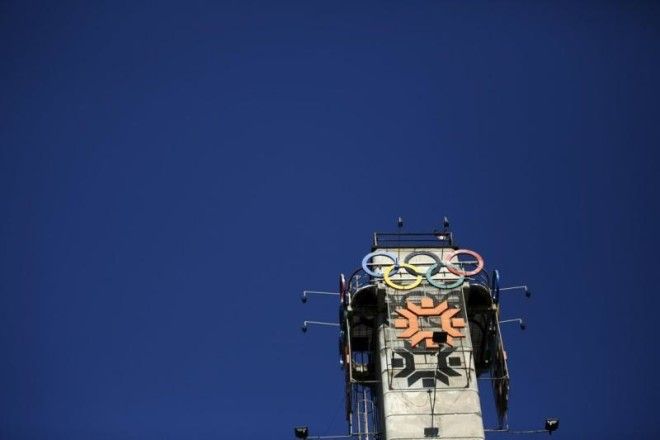
This is what's left of the figure skating facility, Zetra Hall.

Atlanta hosted the Summer Olympics in 1996. The Atlanta-Fulton County Stadium was used for baseball, but was demolished in 1997. The space was turned into 4,000 parking spaces.
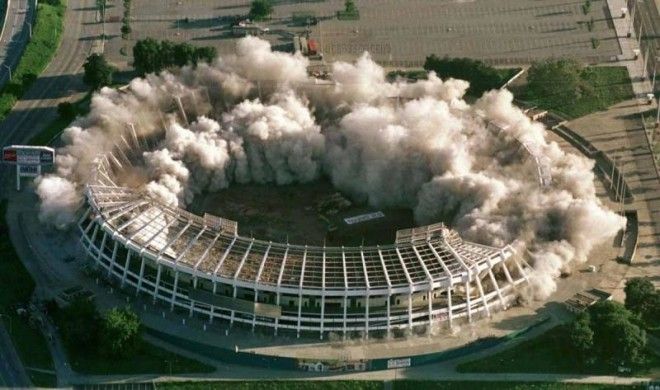
The cauldron was moved from Atlanta's Centennial Olympic Stadium when the stadium was renamed Turner Field and repurposed for the Braves. The cauldron now sits idly overlooking a highway, and Turner Field will be demolished in 2017.
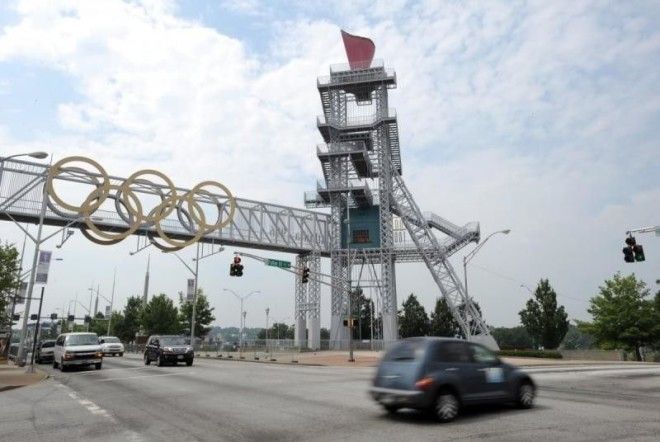
Beijing hosted the 2008 Summer Olympics, and will host the 2022 Winter Olympics.
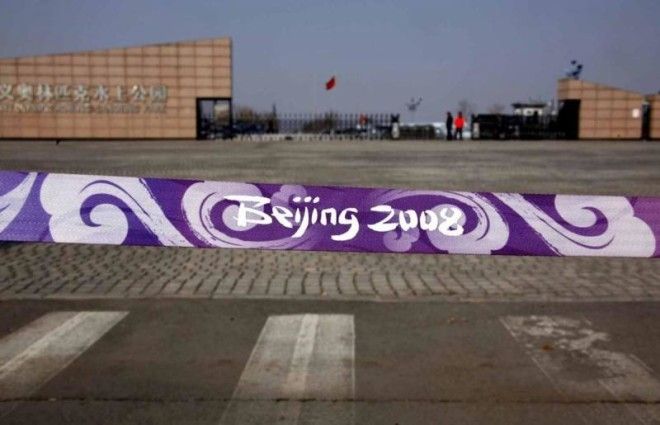
A sign from the area where the baseball stadium once stood.
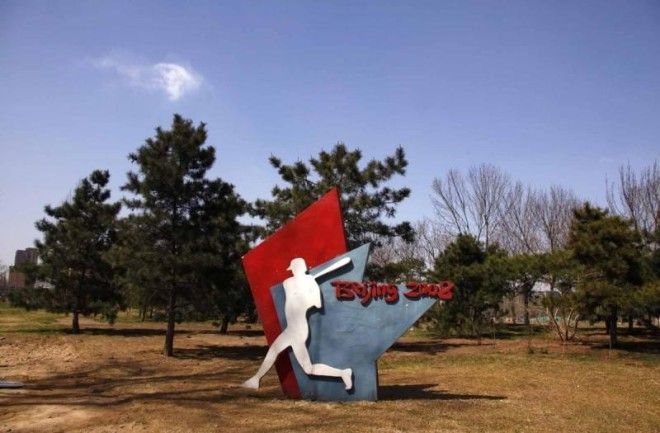
A stray dog on a field that was once inside the baseball stadium.
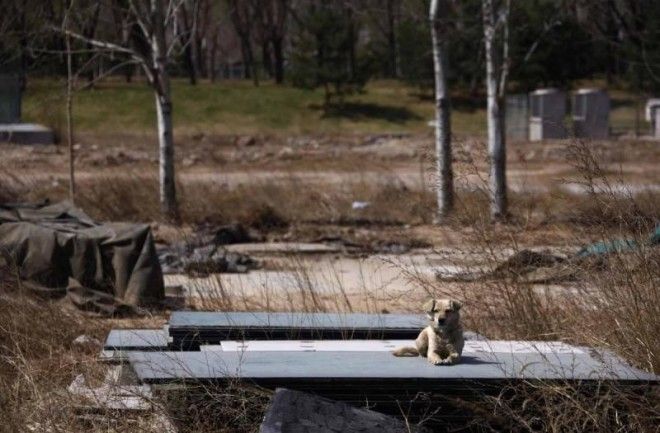
A make-shift broom lying in what was once an Olympic "green area."
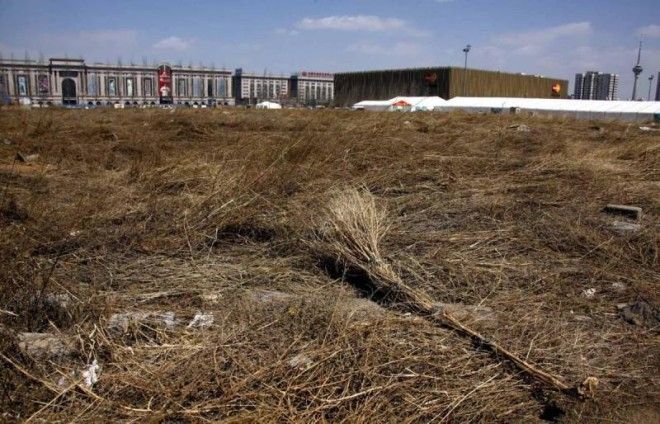
Tourists stand to take pictures next to the rings in a former "green area" from the Olympics.
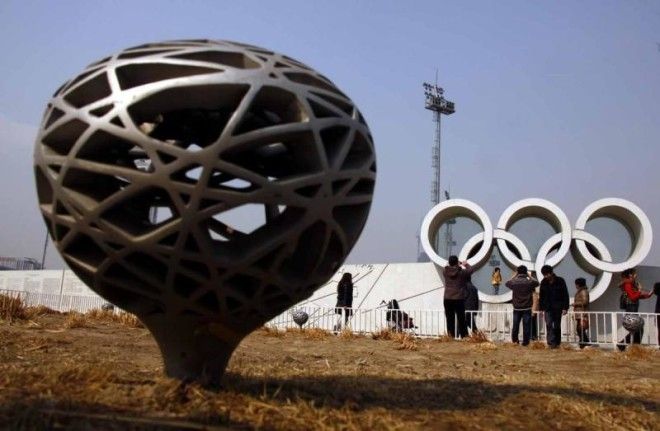
The parking lot for the cycling stadium is now used for driving tests.
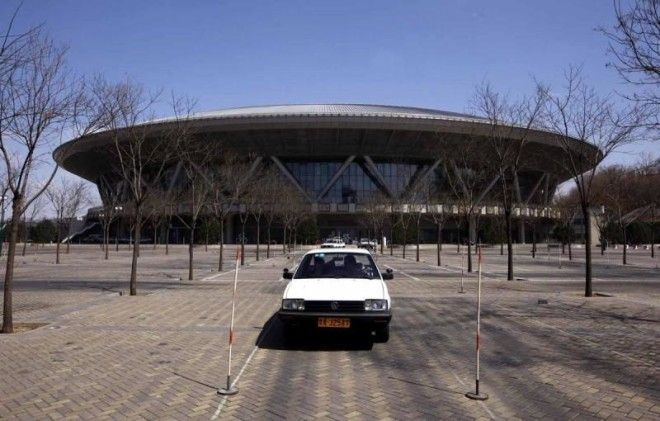
A rusting sign from the kayaking facility.
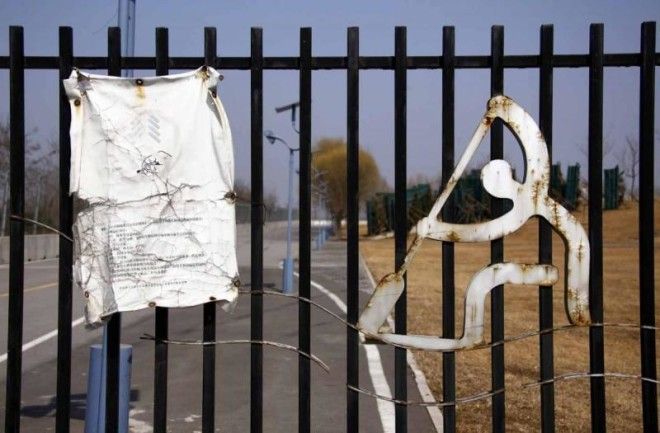
A security guard with a flat tire from his bicycle at the deserted kayaking venue.
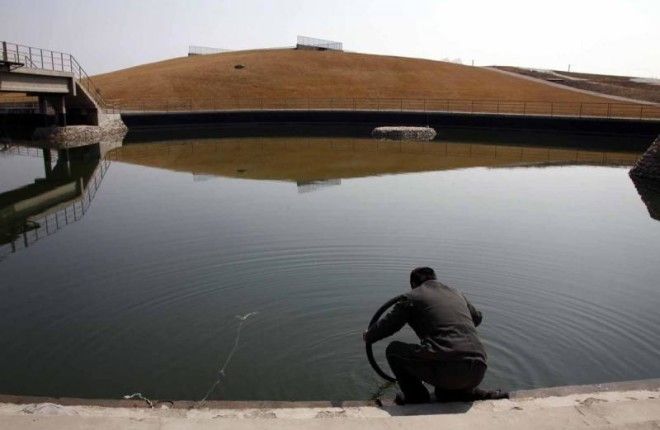
The three empty poles in the left of the shot once flew country flags of medal-winning Olympians.
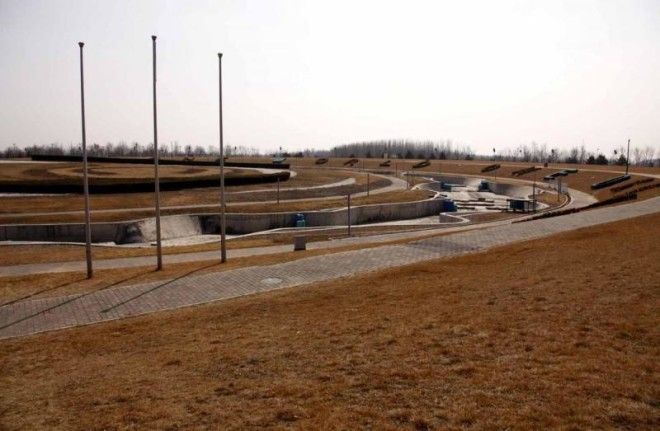
The BMX facility.
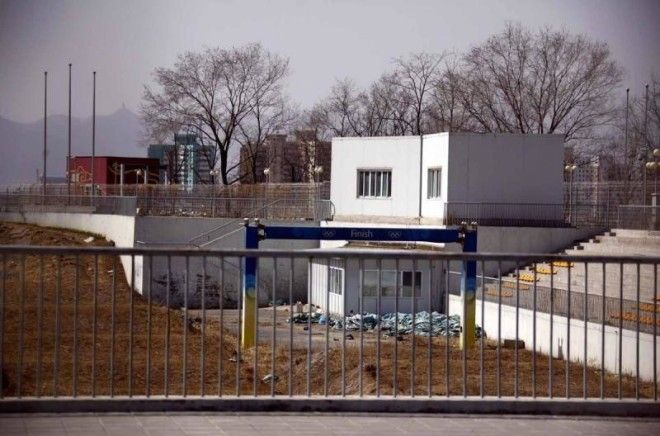
Many of their stadiums are shut out from the public, like the beach volleyball facility.
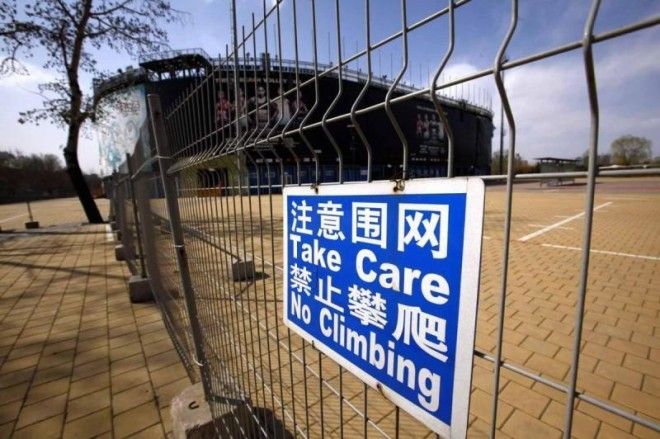
A promotional banner for beach volleyball still stands.
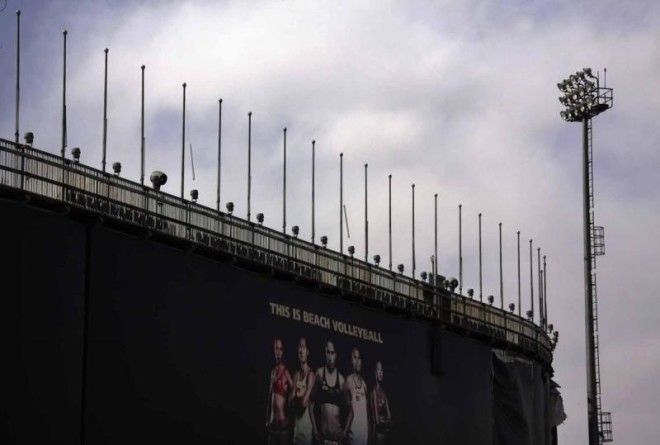
Panels on the outsides of the beach volleyball facility are falling off.
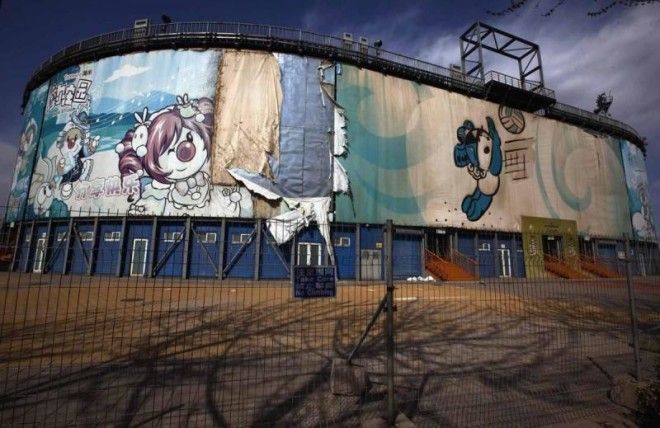
A boat sails past the stands and observation tower from the deserted rowing facility.
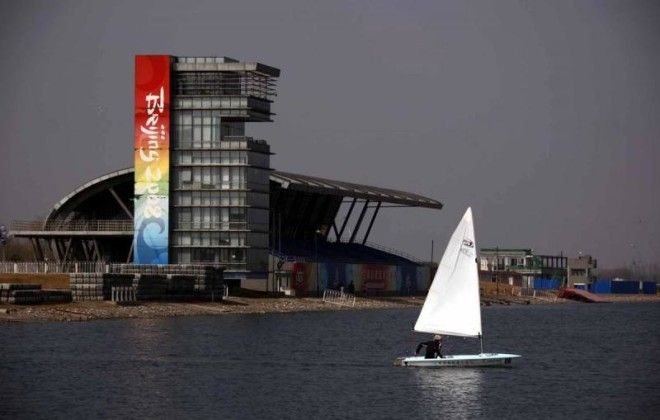
The polluted waters near the facility.
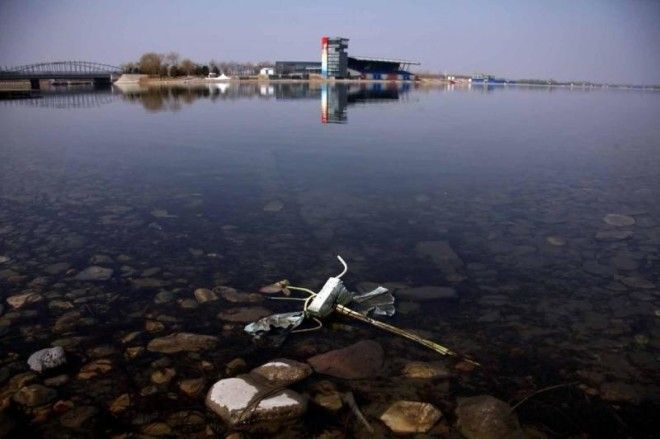
Athens went $15 billion over budget to prepare for the 2004 Summer Olympics.
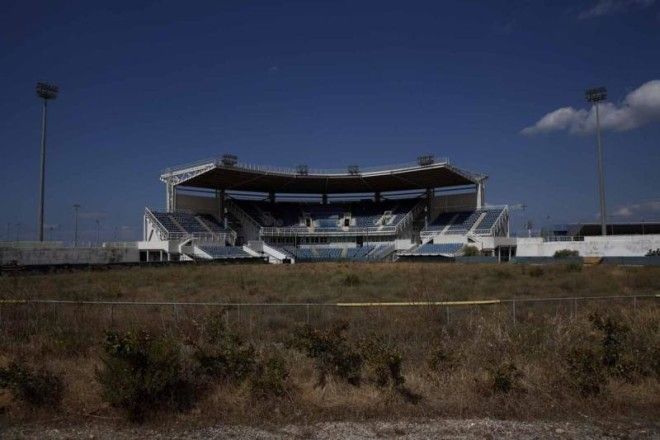
Greece shouldered the cost overruns, and many of the facilities have fallen into disuse.
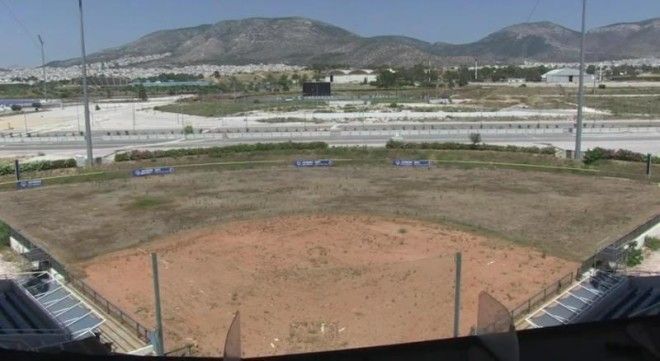
The Olympic village is totally abandoned.
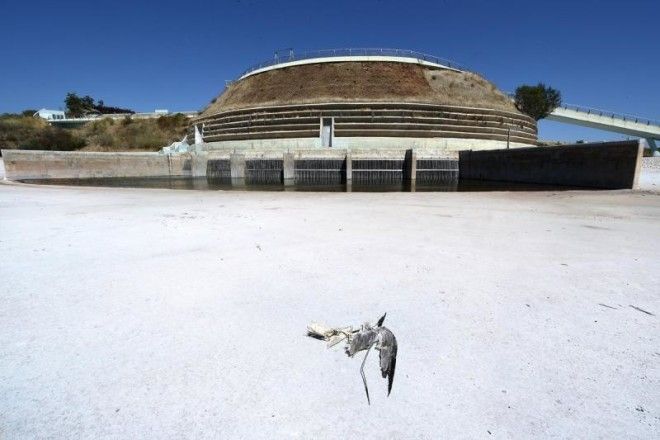
The city planned to turn the Olympic village into public housing.
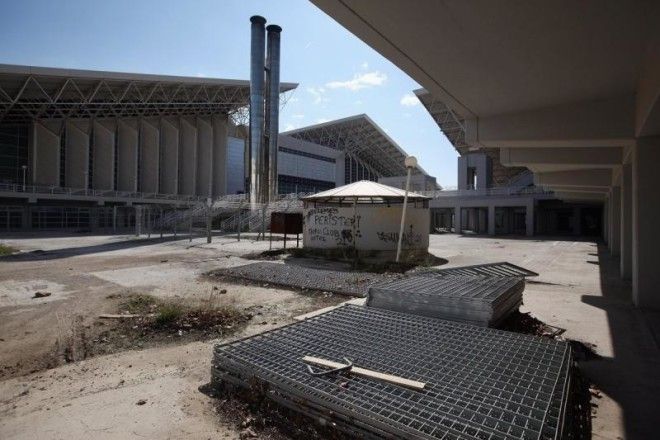
Thousands of families applied to live there, but the whole project fell through.
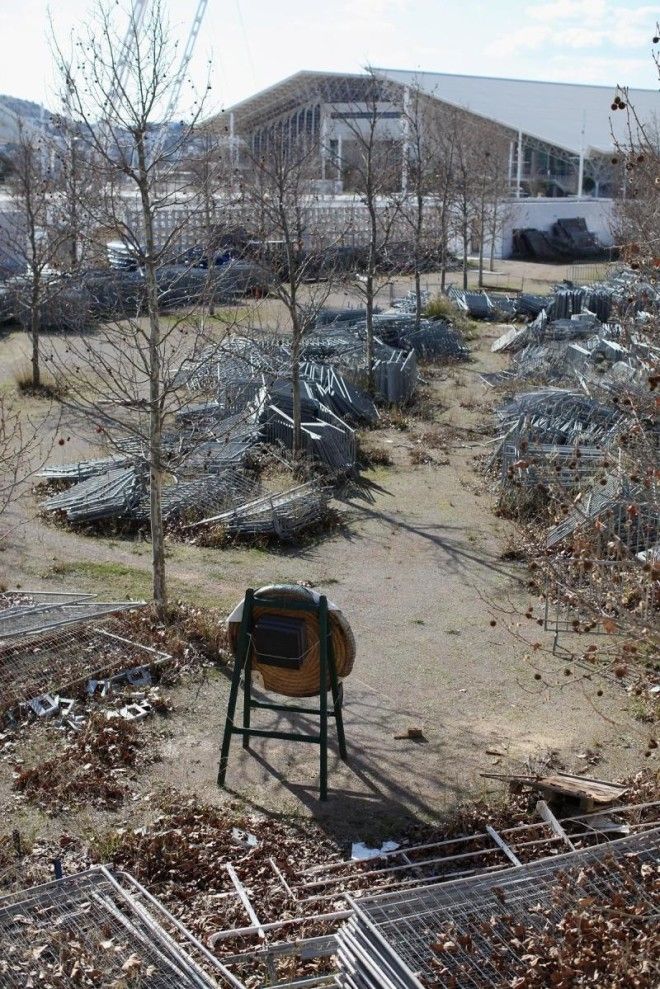
Seating areas are overgrown with weeds.
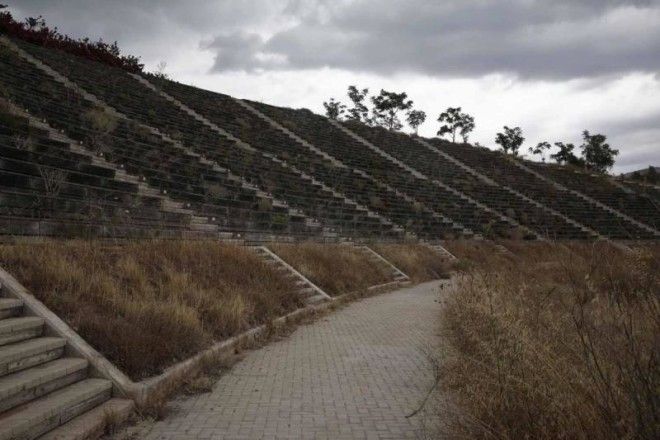
And stairs and totally covered in rust.
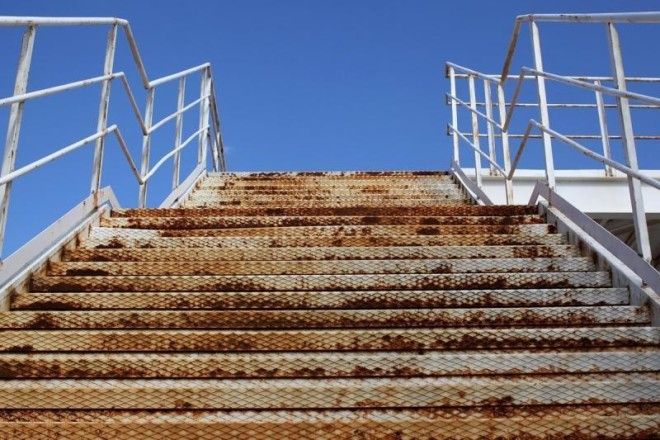
The canoe and kayak facility was the first in Olympic history to be filled with salt water rather than fresh water.
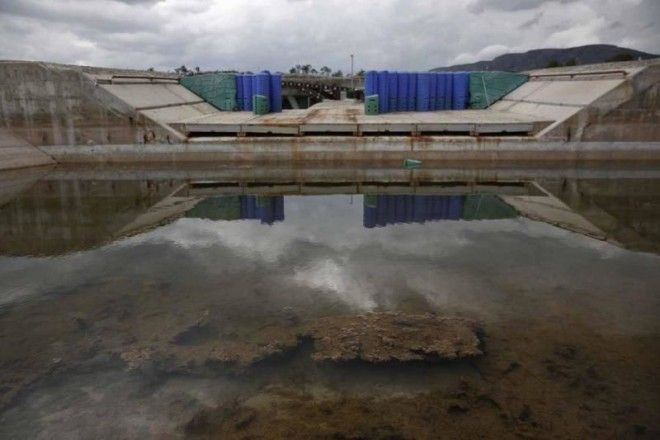
Now it's abandoned.
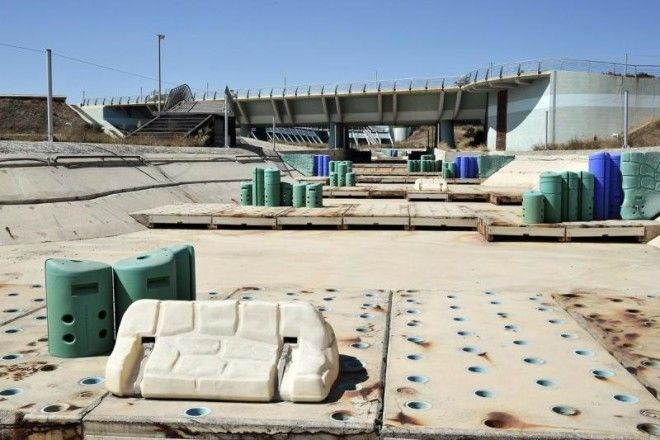
And completely dry in patches.
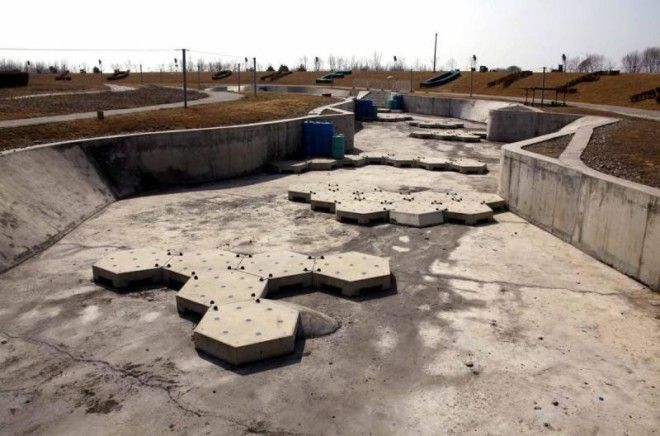
There's graffiti everywhere.
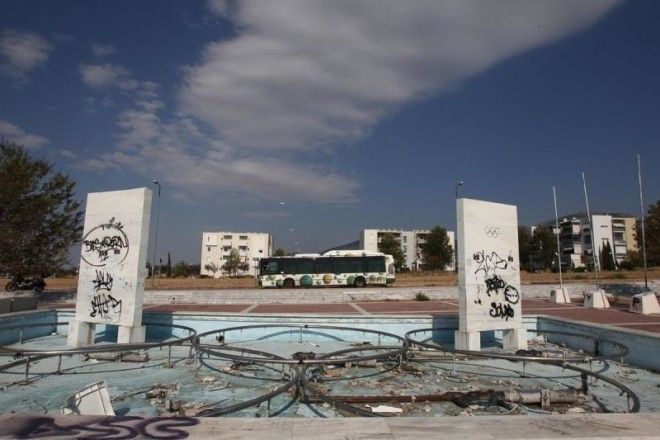
Beach volleyball practice courts are growing wild.
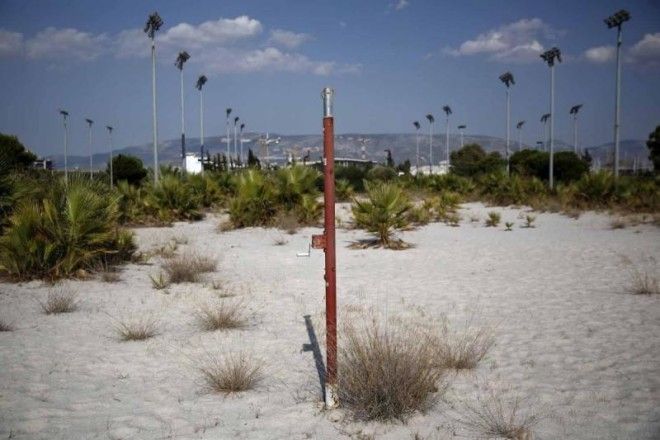
The beach volleyball venue from a distance.
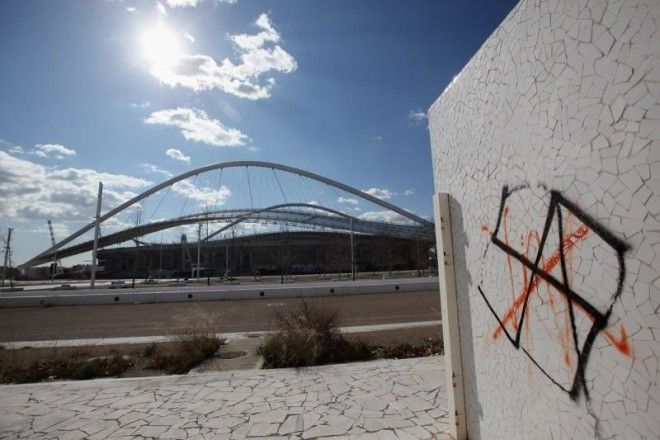
Inside, it's a nightmare.
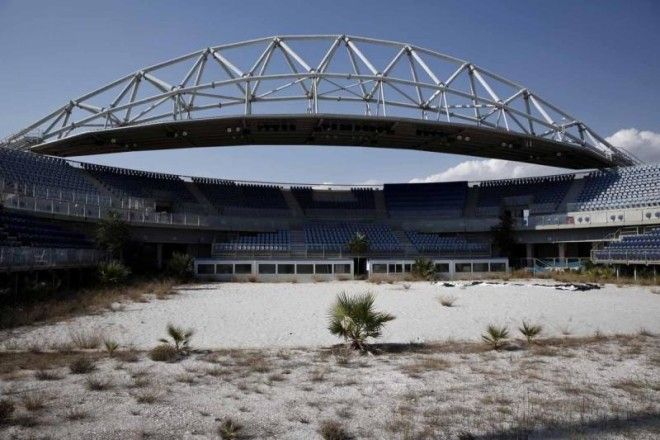
And totally useless.
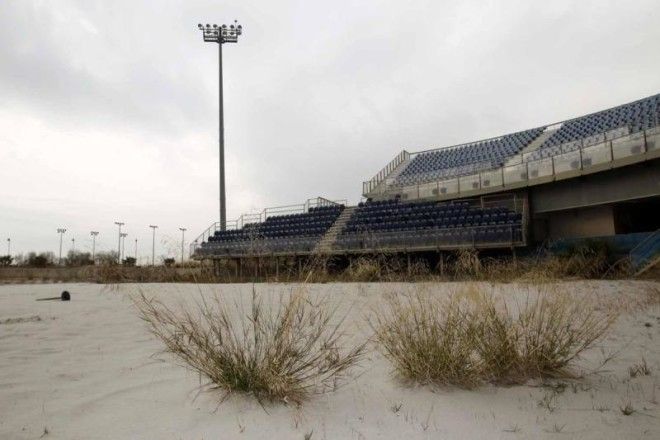
Weeds are everywhere.
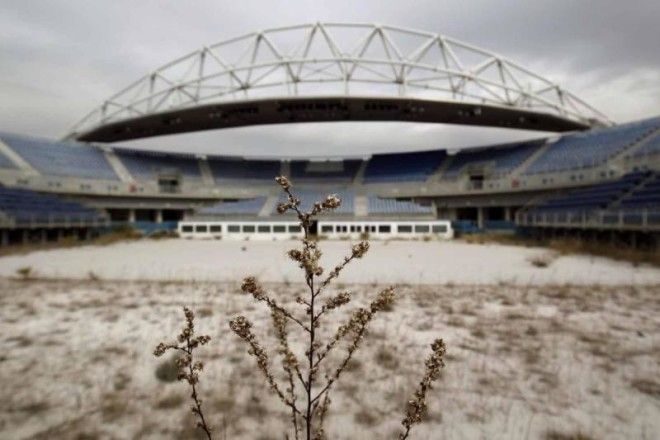
The diving center is drained.
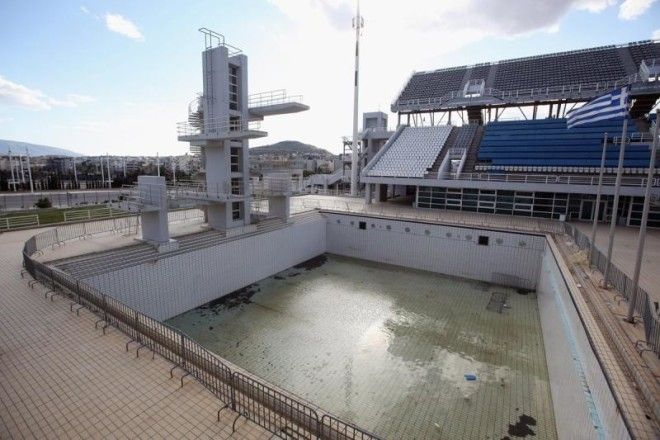
One pool is filthy.
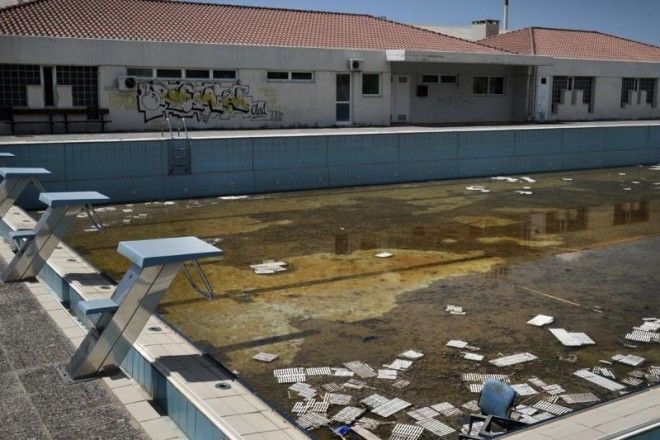
And totally polluted.
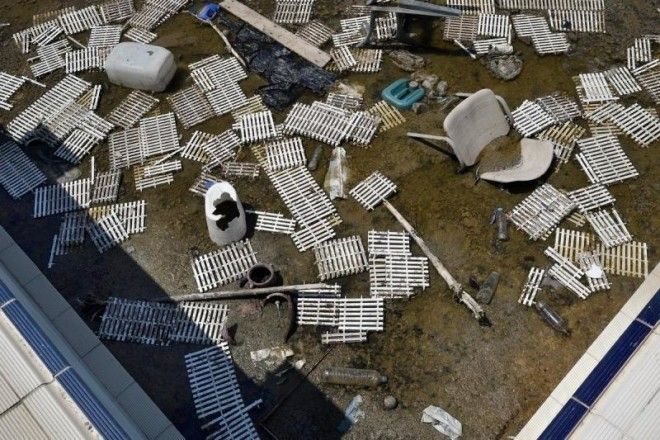
Frogs have found homes, at least.
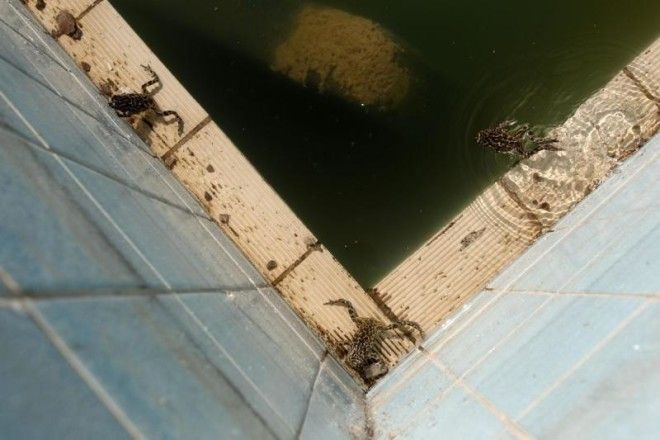
The tracks are still used by some, but it doesn't mean they're in good shape.
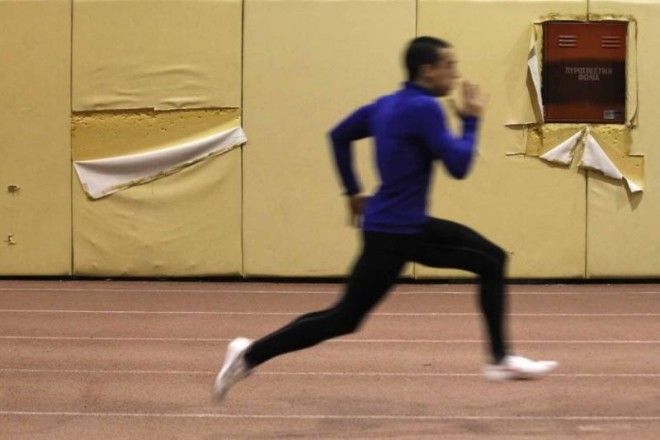
The field hockey facility.
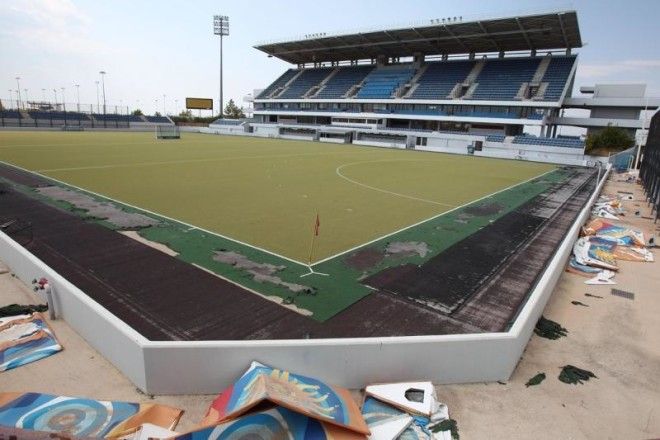
And an old podium.
